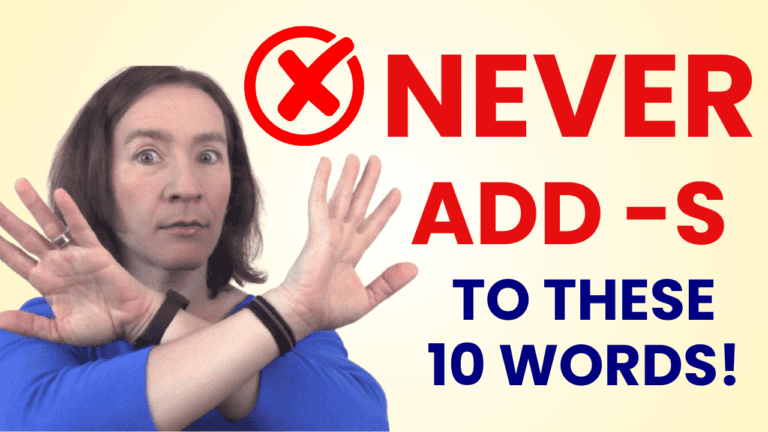
Have you ever noticed some English words with hyphens between them? For example:
- a well-known author
- an English-speaking country
- a three-hour movie
- a part-time job
- a middle-aged woman
These are called compound adjectives – meaning an adjective that has two or more words.
In this lesson, you’re going to learn some of the most compound adjectives with example sentences.
Compound Adjectives with Numbers
- three-second
There’s a three-second delay. - ten-minute
Let’s take a ten-minute break. - two-hour
She attended a two-hour seminar. - five-day
He went on a five-day trip. - six-week
We took a six-week course. - one-month
The penalty for cheating is a one-month suspension. - two-year
I have a two-year contract with my cell phone provider. - four-year-old
I have a four-year-old son. - twelve-storey
We live in a twelve-storey apartment building - twenty-page
He handed me a twenty-page report.
Common Error: adding -S
Don’t use -s at the end of compound adjectives with numbers:
- Let’s take a ten-minutes break.
- Let’s take a ten-minute break.
Adjective / Adverb + Past Participle
- narrow-minded = not open to different ideas/thoughts
I can’t stand narrow-minded people who are intolerant of new ideas. - well-behaved
They have three well-behaved children. - old-fashioned
We had lunch in an old-fashioned restaurant with décor from the 1950s. - densely-populated
This densely-populated area has the highest crime rates in the country. - short-haired
He was dancing with a short-haired woman. - widely-recognized
She’s a widely-recognized expert in technology. - high-spirited = with a lot of energy
The students gave a high-spirited musical performance. - well-educated
A lot of well-educated people are still having trouble finding jobs. - highly-respected
Our speaker tonight is a highly-respected scholar. - brightly-lit
We live on a brightly-lit street in the city center. - absent-minded = forgetful, not thinking
His absent-minded comment hurt his sister’s feelings. - strong-willed = strong desires, stubborn, does not desist
She’s a strong-willed woman who won’t stop until she gets what she wants. - quick-witted = intelligent, clever, fast at thinking and discovering things
The quick-witted detective solved the crime before anyone else had a clue. - middle-aged = around 40-50 years old
A lot of middle-aged men are dissatisfied with their lives. - kind-hearted = friendly
A kind-hearted stranger helped us find the train station.
Adjective / Adverb / Noun + Present Participle (-ING)
- good-looking = attractive, beautiful, handsome
Who’s that good-looking guy over there? - long-lasting
This long-lasting makeup will keep you looking lovely day and night. - record-breaking
The athlete’s record-breaking performance won him the gold medal. - never-ending
Learning a language seems to be a never-ending process. - mouth-watering
There was a variety of mouth-watering desserts at the wedding reception. - thought-provoking
It was a thought-provoking novel. - slow-moving
I was stuck in slow-moving traffic for over an hour. - far-reaching
The new law will have far-reaching effects in the economy. - time-saving
These time-saving techniques will help you work more efficiently. - forward-thinking
Some forward-thinking politicians are proposing reforms to the educational system.
Other Compound Adjectives
- ice-cold
There’s nothing better than drinking an ice-cold lemonade on a hot summer day. - last-minute
I hate it when my boss wants to make last-minute changes to a publication. - full-length
The director produced his first full-length movie in 1998. - world-famous
We had dinner at a world-famous Italian restaurant. - fat-free
These fat-free cookies are delicious!
When to use a hyphen?
Use a hyphen when the compound adjective comes BEFORE the noun it modifies, but not when it comes AFTER the noun.
This is a world-famous museum.
This museum is world famous.
We walked into a brightly-lit room.
We walked into a room that was brightly lit.
It was quite a thought-provoking book.
The book was quite thought provoking.
Learn more: 100 common adjectives in English








